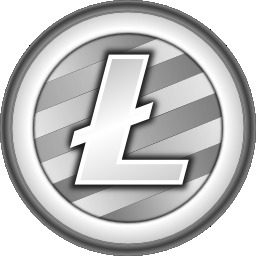Bandingkan Bitcoin Cash (BCH) vs Litecoin (LTC) Coin
In the evolving landscape of digital currencies, Bitcoin Cash (BCH) and Litecoin (LTC) have carved a noteworthy reputation for themselves. As both aim to ease daily transactions with faster speed and lower costs, it's essential to delve into their differences and similarities, exploring their unique attributes and potential for future growth.
User rating
Cryptogeek rating
About
|
Bitcoin Cash is the most popular Bitcoin hard fork proposed by Roger Ver in 2017 as a solution to the problem of slow transactions in the Bitcoin network. The idea was to create a version of Bitcoin that would be better for payments, while original Bitcoin is considered more as a store of value. Bitcoin Cash has a bigger block size than Bitcoin so the transactions of this currency are faster and cheaper. On the other side, it requires more resources to run the full node of Bitcoin Cash which makes it more vulnerable to centralization.
Bitcoin Cash quickly attracted a huge following and became a prominent part of the cryptocurrency market. BCH is available on many exchanges and is supported by numerous crypto services. Since the launch of the project, it has never left the top 10.
|
Litecoin was created in 2011 by a Google employee Charlie Lee. Currently, this cryptocurrency is one of the largest by market capitalization. Litecoin was created as one of the first forks of the Bitcoin blockchain. Also, it is safe to say that Litecoin is one of the first altcoins. While Bitcoin is based on SHA-256 algorithm, Litecoin utilizes a lighter scrypt algorithm.
|
Type
Founding Date
Country
|
International
|
International
|
Languages
Team
Protocol
|
Public blockchain
|
Public blockchain
|
Current price (USD)
All-time high (USD)
Price change (24h)
Volume (24h)
|
13033788.58495
|
14962166.23134
|
Hashrate
Max Supply
|
21000000.00000
|
84000000.00000
|
Total supply
Circulating Supply
|
19921018.64665
|
76263089.48347
|
Transaction speed / Block time
Transaction fee
Mining profitability
Algorithm
Proof type
Fully premined
Smart contract address
Total coins mined
|
18462627.14680
|
65464957.99676
|
Is trading
Block reward
|
6.250000000000
|
12.500000000000
|
Block time
| Company |
|
|
| User rating |
User rating
4.4 / 5
7 user review
|
User rating
5 / 5
5 user review
|
| Cryptogeek rating |
Cryptogeek rating
4 / 5
|
Cryptogeek rating
3.4 / 5
|
| Trust Score
How it works
|
Trust Score
4.19 / 5
|
Trust Score
3.98 / 5
|
| About |
Bitcoin Cash is the most popular Bitcoin hard fork proposed by Roger Ver in 2017 as a solution to the problem of slow transactions in the Bitcoin network. The idea was to create a version of Bitcoin that would be better for payments, while original Bitcoin is considered more as a store of value. Bitcoin Cash has a bigger block size than Bitcoin so the transactions of this currency are faster and cheaper. On the other side, it requires more resources to run the full node of Bitcoin Cash which makes it more vulnerable to centralization.
Bitcoin Cash quickly attracted a huge following and became a prominent part of the cryptocurrency market. BCH is available on many exchanges and is supported by numerous crypto services. Since the launch of the project, it has never left the top 10.
|
Litecoin was created in 2011 by a Google employee Charlie Lee. Currently, this cryptocurrency is one of the largest by market capitalization. Litecoin was created as one of the first forks of the Bitcoin blockchain. Also, it is safe to say that Litecoin is one of the first altcoins. While Bitcoin is based on SHA-256 algorithm, Litecoin utilizes a lighter scrypt algorithm.
|
| Type |
Type
coin
|
Type
coin
|
| Founding Date |
Founding Date
2017
|
Founding Date
2011
|
| Country |
Country
International
|
Country
International
|
| Languages |
Languages
No data
|
Languages
No data
|
| Team |
Team
Public
|
Team
Public
|
| Protocol |
Protocol
Public blockchain
|
Protocol
Public blockchain
|
| Current price (USD) |
Current price (USD)
585.4940
|
Current price (USD)
111.2169
|
| All-time high (USD) |
All-time high (USD)
4355.6200
|
All-time high (USD)
375.2900
|
| Price change (24h) |
Price change (24h)
-2.55
|
Price change (24h)
-1.56
|
| Volume (24h) |
Volume (24h)
13033788.58495
|
Volume (24h)
14962166.23134
|
| Hashrate |
Hashrate
2653000000
|
Hashrate
165730
|
| Max Supply |
Max Supply
21000000.00000
|
Max Supply
84000000.00000
|
| Total supply |
Total supply
No data
|
Total supply
No data
|
| Circulating Supply |
Circulating Supply
19921018.64665
|
Circulating Supply
76263089.48347
|
| Transaction speed / Block time |
Transaction speed / Block time
116
|
Transaction speed / Block time
56
|
| Transaction fee |
Transaction fee
No data
|
Transaction fee
No data
|
| Mining profitability |
Mining profitability
low
|
Mining profitability
low
|
| Algorithm |
Algorithm
SHA-256
|
Algorithm
Scrypt
|
| Proof type |
Proof type
PoW
|
Proof type
PoW
|
| Fully premined |
Fully premined
No data
|
Fully premined
No data
|
| Smart contract address |
Smart contract address
No data
|
Smart contract address
No data
|
| Total coins mined |
Total coins mined
18462627.14680
|
Total coins mined
65464957.99676
|
| Is trading |
Is trading
yes
|
Is trading
yes
|
| Block reward |
Block reward
6.250000000000
|
Block reward
12.500000000000
|
| Block time |
Block time
600
|
Block time
150
|
Social
Website
Twitter
Advantages
|
Scalable
Highly Efficient
Easy To Acquire
|
Open-source Network
Decentralized
Transactions Fees
|
Disadvantages
|
Branding Issues
|
Has some branding issues
|
Rating
| User rating |
User rating
4.4 / 5
7 user review
|
User rating
5 / 5
5 user review
|
| Cryptogeek rating |
Cryptogeek rating
4 / 5
|
Cryptogeek rating
3.4 / 5
|
| Advantages |
Advantages
Scalable
Highly Efficient
Easy To Acquire
|
Advantages
Open-source Network
Decentralized
Transactions Fees
|
| Disadvantages |
Disadvantages
Branding Issues
|
Disadvantages
Has some branding issues
|
Bitcoin Cash (BCH) user rating is 4.4, based on 7 user reviews. Litecoin (LTC) user rating is 5, based on 5 user reviews.
We also calculate the special Cryptogeek TrustScore based on the characteristics of each coin.
Choose other companies
Thus, after comparing Bitcoin Cash and Litecoin's unique attributes, it's clear that while both offer their distinct advantages, the choice between the two depends largely on the individual's specific needs and preferences. As this dynamic industry continues to grow, each of these digital currencies will undoubtedly continue to evolve and refine their functionalities, potentially reshaping their competitive geography.
In the evolving landscape of digital currencies, Bitcoin Cash (BCH) and Litecoin (LTC) have carved a noteworthy reputation for themselves. As both aim to ease daily transactions with faster speed and lower costs, it's essential to delve into their differences and similarities, exploring their unique attributes and potential for future growth.

